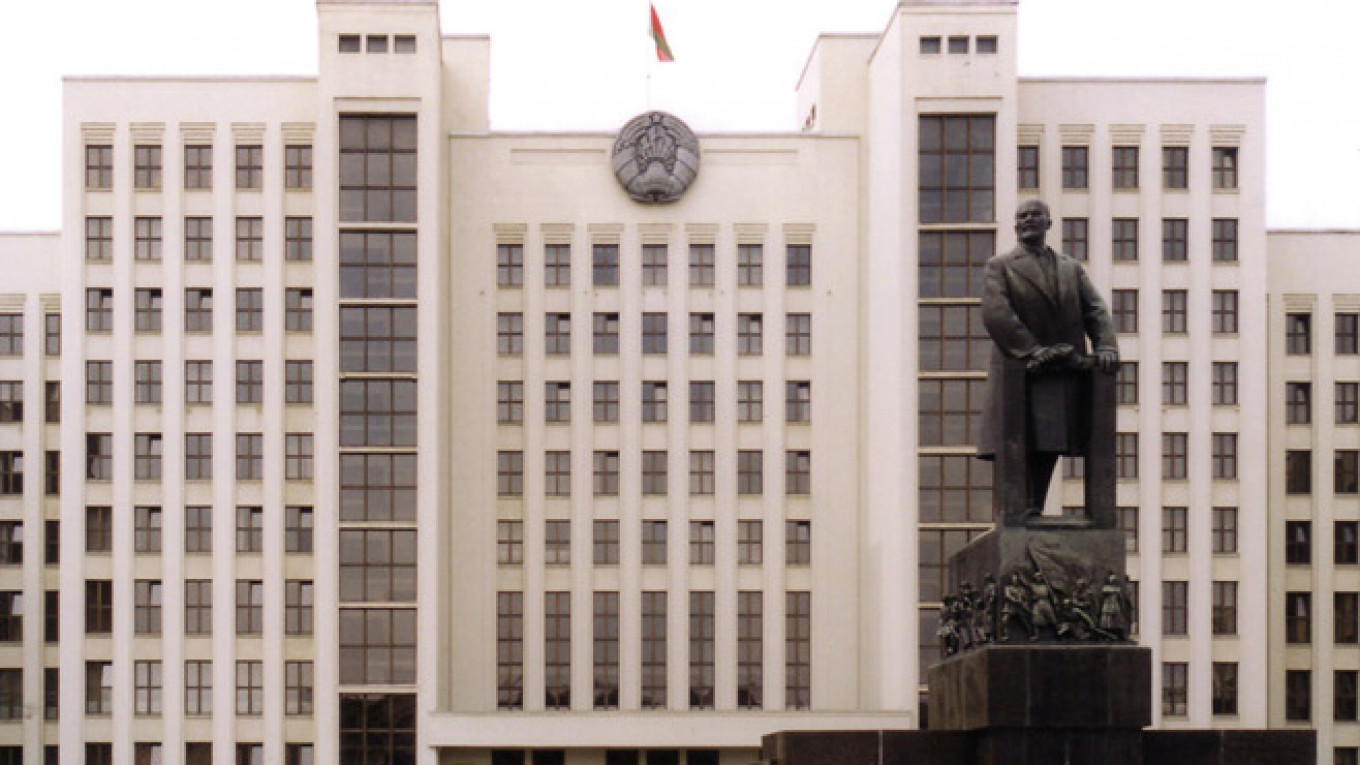Moscow dispatched top veterinary officials to Belarus on Tuesday after the neighboring country, which has a free-trade zone with Russia, said it would not become a back-door conduit for banned Western food products.
Last week Russia banned imports of fruit, vegetables, meat, poultry, fish, shellfish, scallops, milk and dairy from the United States, the European Union, Australia, Canada and Norway in retaliation for Western sanctions over the crisis in Ukraine.
Since the ban was imposed, Russian media have been flooded with jokes that Moscow will soon see supplies of oysters and shrimp coming from landlocked Belarus, which together with Kazakhstan has a free-trade deal with Russia as part of the Customs Union between the three states.
Both Belarus and Kazakhstan have said they will continue to import the Western foods that Moscow has banned.
Minsk has said, however, that it will prevent banned foods from being shipped onward to Russia.
"If Russia has closed its market for certain products, we must not allow the transit of these products via Belarus to Russia," Belarussian President Alexander Lukashenko was quoted as saying by his administration this week.
"As for our domestic market, we had a separate discussion of this issue. It's our own affair. If we need Polish apples, we buy them, but not for Russia," Lukashenko said.
On Tuesday, Sergei Dankvert, head of Russia's veterinary regulator, and other officials from the agency traveled to Minsk for talks. A delegation from Belarus was expected in Moscow on Wednesday.
Belarus is Russia's closest ally, relying on Moscow for cheap energy and serving as a buffer zone between Russia and NATO nations.
Importers say that small scale re-exports could still reach Russia, but that large operations were unlikely.
"On the one hand, Belarussian companies may be interested in benefiting from this. On the other hand, there is a risk of seriously damaging relations with Russia," said Viktor Markelov, head of the Belarussian Confederation of Entrepreneurship.
Belarus hopes to significantly increase export volumes to Russia of the food it produces such as pasta, vegetables, grocery products and confectionery, Belarussian Agriculture Minister Leonid Zayats told local media last week.
Belarus supplied food products worth $1 billion to Russia in January-March, mainly milk, dairy products and meat.
In Kazakhstan, the administration of President Nursultan Nazarbayev has said Moscow's food bans are a "unilateral act."
Russia last year imported $17.2 billion worth of food from the countries covered by the sanctions, of which $9.2 billion was in the affected categories, according to the International Trade Center, a joint venture of the United Nations and the World Trade Organization.
A Message from The Moscow Times:
Dear readers,
We are facing unprecedented challenges. Russia's Prosecutor General's Office has designated The Moscow Times as an "undesirable" organization, criminalizing our work and putting our staff at risk of prosecution. This follows our earlier unjust labeling as a "foreign agent."
These actions are direct attempts to silence independent journalism in Russia. The authorities claim our work "discredits the decisions of the Russian leadership." We see things differently: we strive to provide accurate, unbiased reporting on Russia.
We, the journalists of The Moscow Times, refuse to be silenced. But to continue our work, we need your help.
Your support, no matter how small, makes a world of difference. If you can, please support us monthly starting from just $2. It's quick to set up, and every contribution makes a significant impact.
By supporting The Moscow Times, you're defending open, independent journalism in the face of repression. Thank you for standing with us.
Remind me later.






